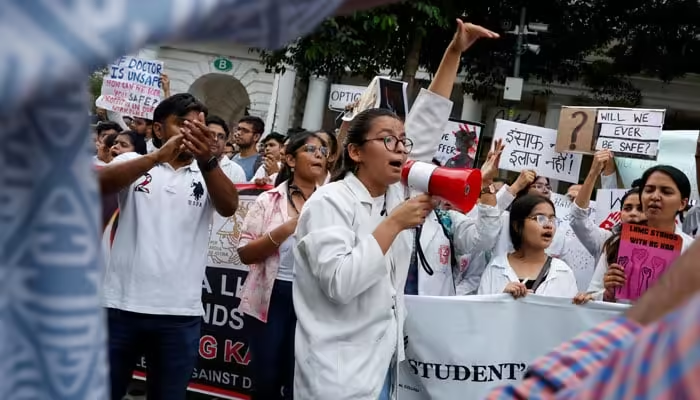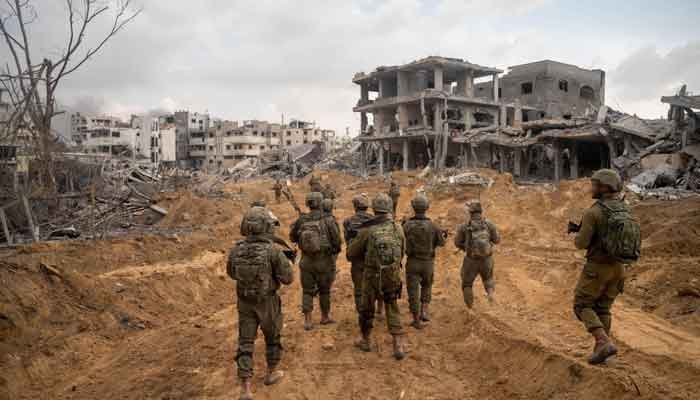On Monday, thousands of junior doctors across India continued their protests following the brutal rape and murder of a fellow medic. The protests have been ongoing for nearly a week, disrupting hospital services and drawing nationwide attention to issues of workplace safety and the need for swift legal action.
The demonstrations began in response to the August 9 killing of a 31-year-old female doctor in Kolkata. The victim, a trainee at the RG Kar Medical College and Hospital, was reportedly raped and murdered at the facility. This incident has sparked a widespread outcry among the medical community, leading doctors nationwide to protest and refuse to attend to non-emergency patients.
In connection with the case, a police volunteer has been arrested and charged with the crime. Despite this, women activists argue that the tragedy underscores the ongoing problem of sexual violence against women in India, even after the implementation of stricter laws following the 2012 gang-rape and murder of a 23-year-old student in New Delhi.
The Indian government has urged the protesting doctors to return to their duties while it forms a committee to recommend measures for improving safety for healthcare workers. However, the protesters have vowed to maintain their strike and sit-in until their demands are fully addressed.
Dr. Aniket Mahata, a spokesperson for the junior doctors at the RG Kar Medical College and Hospital, emphasized, “Our indefinite cease-work and sit-in will continue till our demands are met.”
In support of the doctors, thousands of fans from West Bengal’s top soccer clubs demonstrated on the streets of Kolkata on Sunday evening, chanting “We want justice.” Additionally, junior doctors in neighboring states such as Odisha, the capital New Delhi, and Gujarat have expressed solidarity with the protests, pledging to continue their own demonstrations.
The protests reflect deep-seated frustrations within the medical community over safety concerns and the broader issue of violence against women in India.



